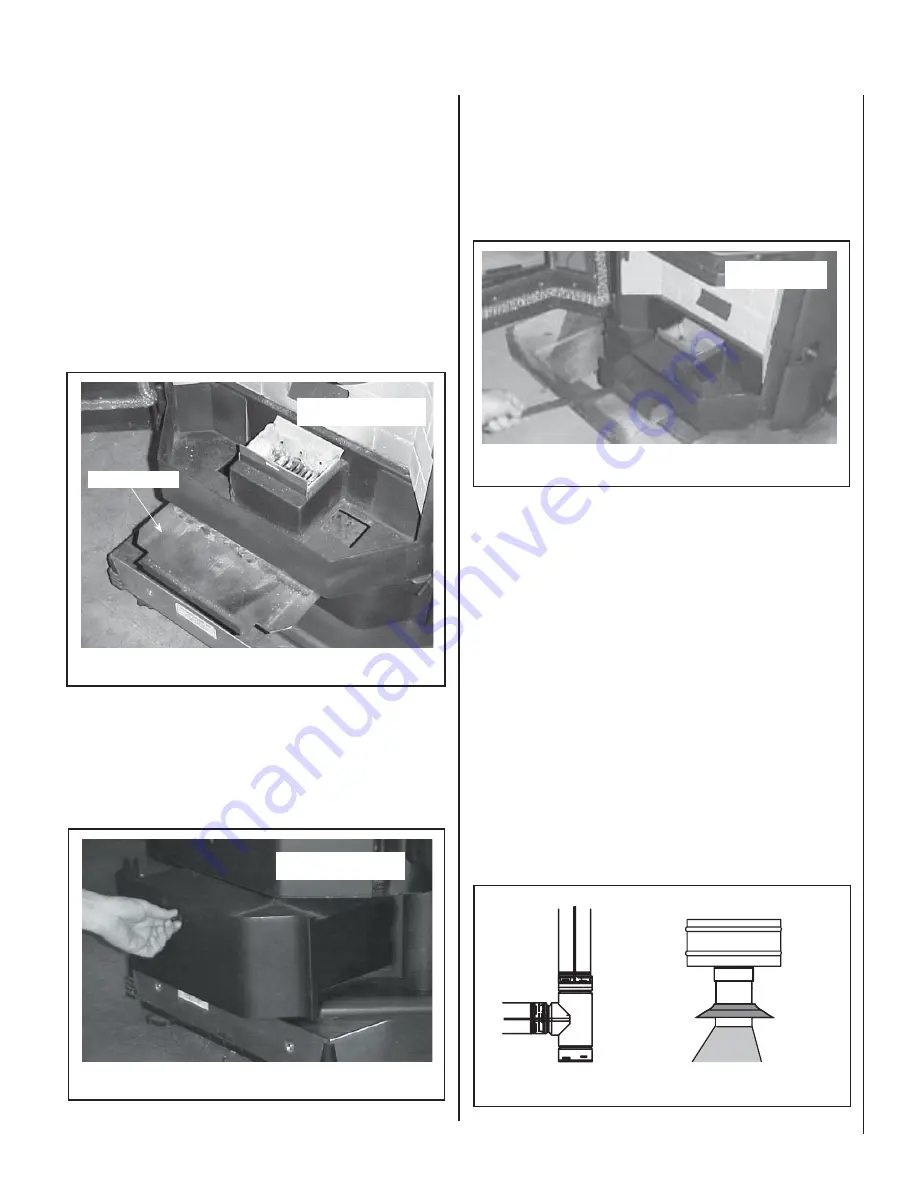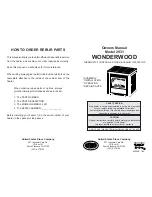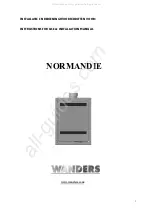
25
NOTE: DIAGRAMS & ILLUSTRATIONS ARE NOT TO SCALE
Ash Slide Plate (Profi le
®
20 FS-2 and Profi le 30 FS-2)
Ash that accumulates around the grate can be “dropped” into the ash
pan as follows:
1. Open the fi rebox door.
2. Using the grate scraper tool, pull open the ash release slide plate (see
Figure 45
).
3. Using a brush, sweep the ashes from the fi rebox through openings to
the ash pan.
4. Close the ash slide plate, then close the fi rebox door.
IMPORTANT NOTE: Make sure to fully close the ash slide plate when
complete. Failure to close the ash release slide plate completely may
cause the fuel to burn poorly (due to reduced air fl ow through the grate),
which may then cause pellets to “pile up” in the grate. The ash slides
must be fully closed for the fi rebox door to close.
Ash Slide Plate
Figure 45 - Using the Ash Slide Plate
(Recommended Frequency
of 1 day – 2 weeks)
Ash Pan (Profi le 20 FS-2 and Profi le 30 FS-2)
The ash pan will have to be emptied periodically, depending on amount
of fuel consumed. The ash pan is located in the pedestal on the Profi le
20-2 and Profi le 30 FS-2. It can be removed by turning the T-Bar latch
fully counterclockwise.
Figure 46 -
Ash Pan, Profi le 20 FS-2 and Profi le 30 FS-2
(Recommended Frequency
of 2 days – 2 weeks)
Ash Pan (Profi le 30 INS-2)
The Profi le 30 INS-2 has three ash pans (left side, right side and lower
center). The ash pans should be emptied whenever necessary. The ash
pans can be accessed by opening the fi rebox door. Remove the left and
right ash pans by lifting them out. The lower center ash pan can be removed
by pulling it straight out using the grate scraper tool (see
Figure 47
)
. Be
sure to dump ashes into a non-combustible container. All ash removal
and cleaning should be done while the stove is cold.
Figure 47 -
Lower Ash Pan, Profi le 30 INS-2
(Minimum Frequency
of 1 day – 1 week)
Creosote Removal (All Models)
When wood is burned slowly, it produces tar and other organic vapors,
which combine with expelled moisture to form creosote. The creosote
vapors condense in the relatively cool chimney fl ue of a slow-burning
fi re. As a result, creosote residue accumulates on the fl ue lining.
When ignited this creosote makes an extremely hot fi re. The chimney
connector and chimney should be inspected at least once every two
months during the heating season to determine if a creosote buildup
has occurred.
If creosote has accumulated it should be removed to reduce the risk of
a chimney fi re.
Exhaust Passages And Vent Pipe (All Models)
Inspect frequently and clean when necessary. Fly ash will accumulate at
all bends in the exhaust system.
Note:
Large amounts of fl y ash build-up will create a lack of combustion
air. Removing the clean-out tee cap on vertical installations will allow an
inspection of the ash build-up in the clean-out tee and will help you to
decide how frequently more extensive cleaning must be performed.
Clean-Out
Tee
Rain Cap
Figure 48 -
Clean Vent Components
















































